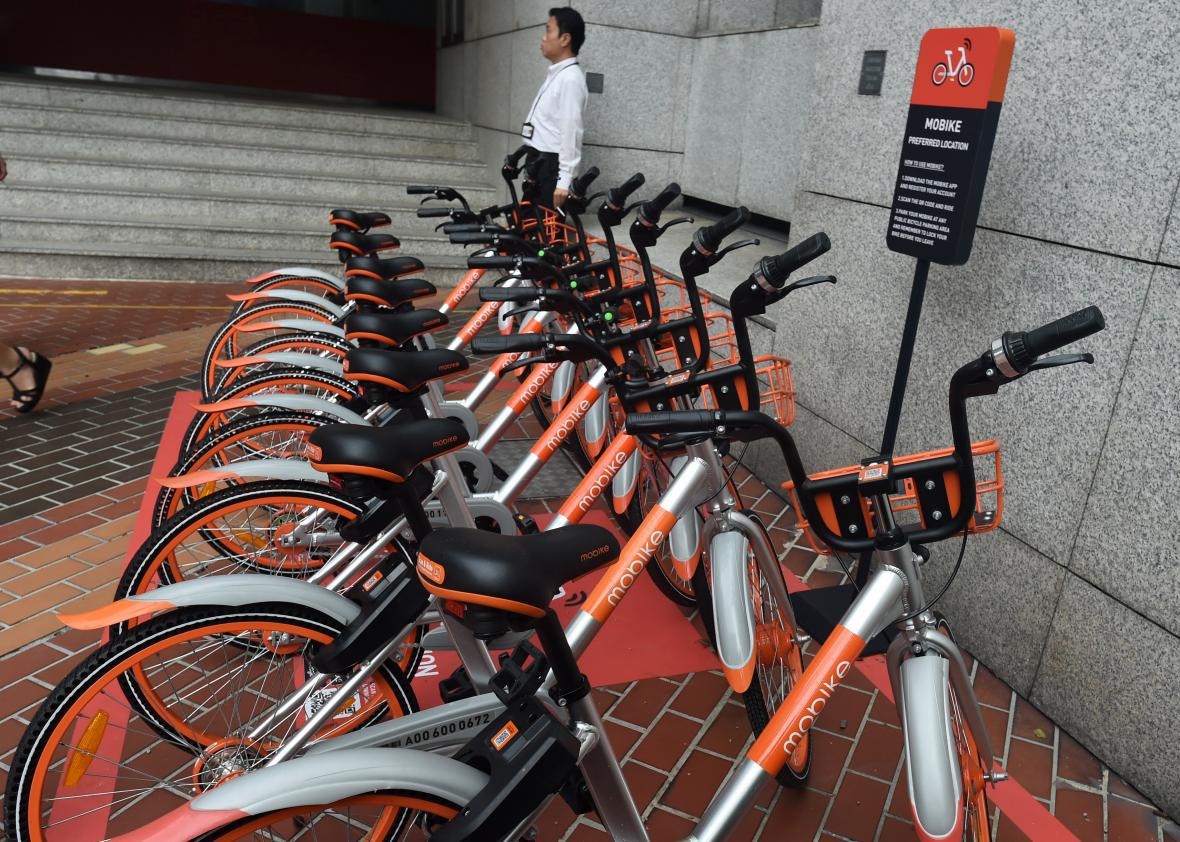It is easy enough these days, in countless metropolises, to pick up and pay for a bike or car in one place and drop it off in another—so easy that an entrepreneurial sort might conclude that the model could be applied to other consumer products that city-dwellers often require. Like umbrellas. Or basketballs.
But the recent foibles of two Chinese companies illustrate how hard it is to translate the bike-sharing model to items that are, well, smaller than a bike. One Shenzen startup, Sharing E Umbrella, earned the internet’s mockery earlier this week after almost all of the 300,000 umbrellas it placed in 11 cities went missing. (It placed its colorful umbrellas on railings within 100 feet of subway exits; customers paid a small fee and deposit to rent them.) Another company, the Zhejiang-based Zhulegeqiu, ran into a similar problem in testing when one of its competitors walked off with one of the basketballs it rented to consumers via lockers that they unlocked with their smartphones.
One big difference, of course, is that these umbrellas and basketballs were not traceable. One way to prevent thefts is by installing GPS trackers on the basketballs or umbrellas that you offer, and Zhulegqiu debated installing GPS trackers on all of its products. But the company realized it would actually be less expensive to hire employees to hound the thieves on their cell phones until the basketballs were returned. Because basketballs and umbrellas cost so little, it probably costs almost as much to install a GPS on them as it does to purchase new ones. Because cars and bicycles cost far more, installing a GPS device makes much more sense.
Cars and bicycles also are more valuable than the other smaller product, and even if it takes a little time to get to one, they cut commute time. It may be annoying to carry around an umbrella, but it also feels silly investing too much time renting one and then finding the right rail to dock it once done.
Or maybe the problem was the storage system: Another Chinese company, Molisan, was more successful at with its umbrella-renting idea. It installed cabinets where its customers could return umbrellas when they were done with them, and found that only eight out of 1,000 umbrellas that they originally provided went missing. But 1,000 umbrellas is a pretty small sample size, and the cost of providing the cabinets is similar to the cost of installing GPS trackers on every basketball. At scale, building all of those umbrella cabinets may not make sense.
And then there’s the network problem. There may be increased demand for cars or bicycles during peak commute times, but there’s still at least some demand throughout a given day. With umbrellas, the problem is that everyone needs them at the same time, and renters need them until they get home, which lessens the incentive to return them. There’s also the issue of having a rainy season and dry season, which is the case in China and almost eliminates the need for umbrellas for months at a time. These issues in use and perceived value make it hard to sustainably loan out small products.
Bike-share systems, of course, aren’t immune to theft, though it hasn’t stopped them from proliferating around the globe. But the temptation to keep or discard what you just rented via smartphone app is greater, it seems, when the thing fits under your arm.
